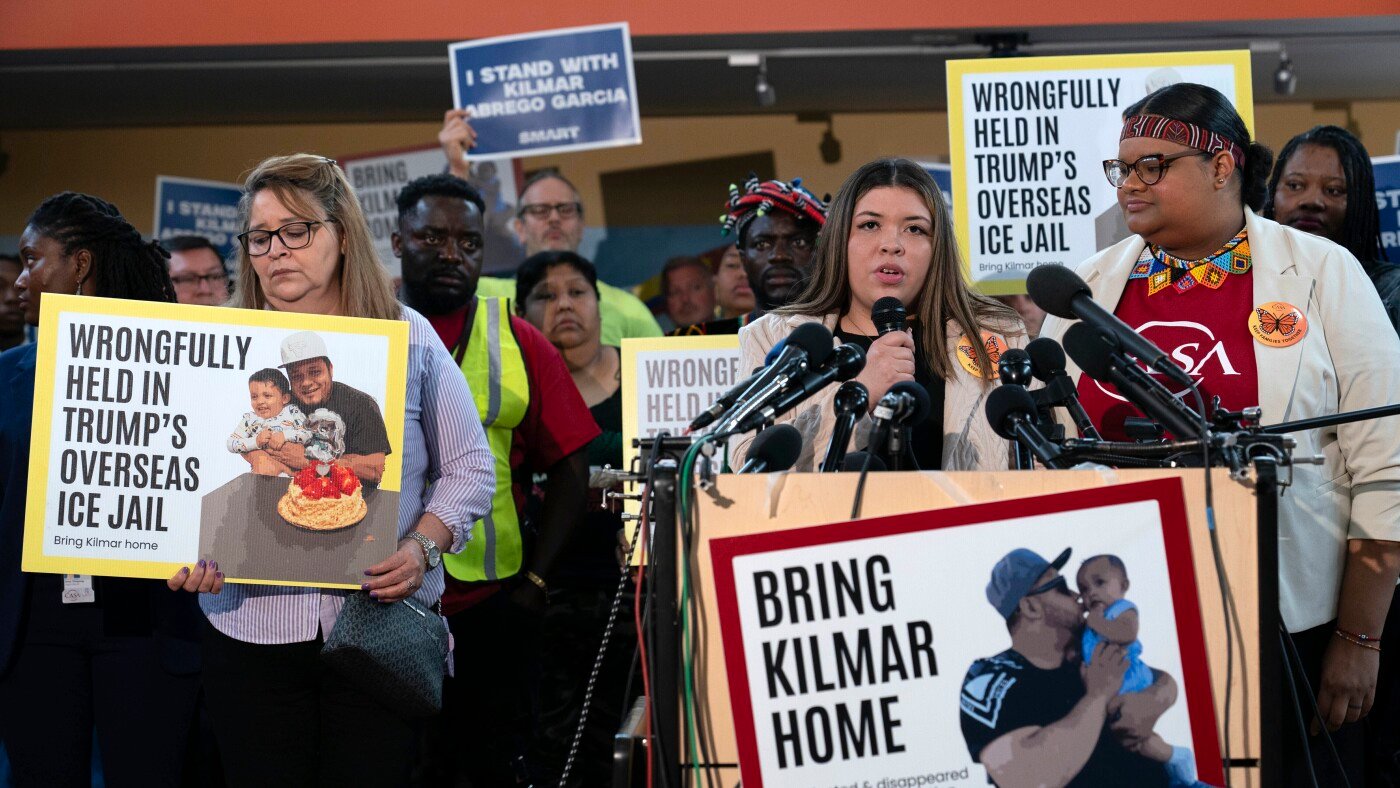June 7, 2025 | Washington, D.C. — Maryland Man Wrongly Deported Returns to U.S., Now Faces Federal Smuggling ChargesIn a dramatic turn of events that has reignited national debates over immigration policy and due process, Kilmar Abrego Garcia, a Maryland resident who was wrongfully deported to El Salvador, has been returned to the United States—only to face new federal charges related to human smuggling and trafficking.
A Controversial Deportation
Abrego Garcia, a married father of three and long-time resident of Maryland, was deported in March 2025 to El Salvador’s notorious CECOT mega prison, despite a 2019 federal court order barring his removal due to safety concerns.
His deportation was later deemed an “administrative error” by U.S. immigration authorities, sparking outrage among civil rights groups and lawmakers.
The Supreme Court upheld a lower court’s ruling that mandated his return to the U.S., citing violations of due process and the mishandling of his legal status.Maryland Man Wrongly Deported Returns to U.S., Now Faces Federal Smuggling Charges
Return to the U.S. and New Charges
On June 6, 2025, Attorney General Pam Bondi announced that Abrego Garcia had landed back on U.S. soil. However, his return was not a simple homecoming. Just hours before his arrival, a federal grand jury in Tennessee unsealed a two-count indictment accusing him of conspiring to smuggle undocumented immigrants into the United States for financial gain.
According to the indictment, Abrego Garcia allegedly played a central role in a smuggling ring that operated from 2016 through 2025. The ring is accused of transporting thousands of migrants from Central and South America—primarily Guatemala, El Salvador, Honduras, and Ecuador—through Mexico and into Texas.
Allegations of Human Trafficking and Abuse
The charges go beyond simple smuggling. Prosecutors allege that Abrego Garcia’s operation was responsible for the deaths of over 50 migrants in a 2021 tractor-trailer accident in Mexico. Attorney General Bondi also claimed that Garcia trafficked firearms and narcotics, and abused undocumented women under his control during transport.
“These were not isolated incidents,” Bondi said during a press conference. “This was a full-time operation involving the exploitation of vulnerable individuals, including women and children. The grand jury found that Mr. Garcia was not just a participant—he was a leader.”
Legal and Political Fallout
Garcia’s legal team has strongly denied the charges, calling them “an abuse of power” and accusing the federal government of using him as a scapegoat to justify harsh immigration policies. Chris Newman, Legal Director of the National Day Laborer Organizing Network, which represents Garcia’s family, stated, “We should treat any of these charges with a high degree of suspicion. He deserves a fair trial—not trial by media”
The case has become a flashpoint in the ongoing debate over immigration enforcement under the Trump administration. Lawmakers like Rep. Glenn Ivey (D-MD) and Rep. Nydia Velázquez (D-NY) have publicly criticized the deportation and the subsequent charges, suggesting they are politically motivated.
Public Reaction and Protests
Garcia’s case has sparked protests across the country, particularly in Maryland, where demonstrators have gathered outside federal courthouses holding signs that read “This Was a Kidnapping” and “Bring Kilmar Home Now!”
Civil rights organizations argue that Garcia’s wrongful deportation and subsequent indictment highlight systemic issues within the U.S. immigration and justice systems. “This is not just about one man,” said a spokesperson for the ACLU. “This is about accountability, transparency, and the rule of law.”
What Happens Next?
Garcia is currently being held in federal custody in Tennessee, where he will face trial. Legal experts say the case could take months, if not years, to resolve, given its complexity and the international scope of the alleged smuggling operation.
If convicted, Garcia could face decades in prison. However, his defense team is expected to challenge the admissibility of evidence obtained during his time in El Salvador, as well as the legality of his deportation and return.
Broader Implications for U.S. Immigration Policy
The case of Kilmar Abrego Garcia underscores the challenges and controversies surrounding U.S. immigration enforcement. It raises critical questions about the balance between national security and individual rights, especially in an era where immigration remains a deeply polarizing issue.
For many, Garcia’s story is emblematic of a broken system—one where administrative errors can lead to life-threatening consequences, and where legal protections can be overridden by political agendas.
Discover more from The World Mix
Subscribe to get the latest posts sent to your email.




